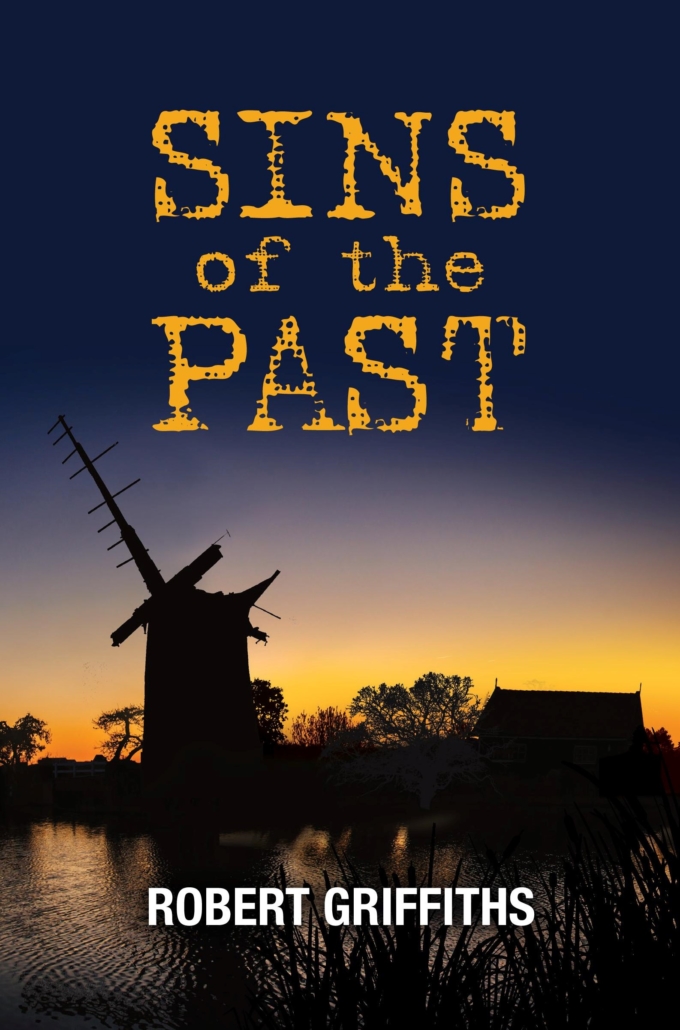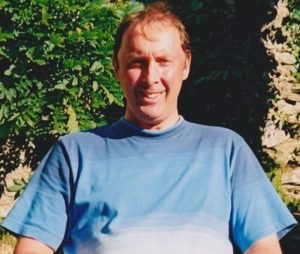Highly respected Cambridge doctor, John Ripley, has secrets.
Dark secrets that cannot be revealed.
The old cottage on the Fens where he once lived is being knocked down. It holds vital links to John’s past that must not become public knowledge. They would destroy everything: his career, his reputation and his marriage.
Going on the run is his only option.
With DCI George Watling determined to find him, can the elusive Dr Ripley stay one step ahead of the law?
This fast-paced and action-packed crime thriller, involving many different international locations, is full of unexpected twists and turns as John Ripley desperately attempts to establish a new life well away from England.
If you like the sound of an international crime thriller full of mystery, suspense and just a hint of the supernatural then Robert’s book could be right up your street! If you are fans of Lee Child‘s Jack Reacher character or of Peter James‘ novels then add Sins of the Past to your reading list.
Available to buy from Amazon
Robert Griffiths was born in Aldridge, Staffordshire, the first son of a Welsh father and an English mother. He was brought up in the rural Lake District but he now lives in Leicestershire on the edge of the Charnwood Forest. He was educated at Heversham School and Hatfield College, University of Durham. He then became a geography and sports master at Loughborough Grammar School.
As a hobby Robert has written several books in different genres on family history, historical geography, children’s adventure stories and one about his old school in Westmorland. He has an eclectic mix of interests from sport (especially football, cricket, running and cycling) to social history, natural history, red wines, fast cars, rock music, travel, gardening, walking and all matters geographical of course!
He is married with two grown-up children.
I would like to introduce you to a new author whose book, Sins of the Past, we have recently published here at Goldcrest Books. I always find it fascinating talking to authors about what got them writing and how their books come about. So I thought I would share an interview I had a short while ago with Robert Griffiths where he gave me some insights into his writing process.
When did you first realise you wanted to be a writer?
It became a hobby just over ten years ago. I started researching my family history and compiled loads of information about it. I decided it would be sensible to sort it all out and write a book that I then had printed and sent out to the family. Since then I’ve followed that up with two more very detailed family histories. The one about my Welsh family was ‘sold’ to family members with all proceeds going to charity. Last year I compiled another book about the English side of the family that spilt over into the historical geography of Birmingham.
I started my crime thriller ‘Sins of the Past’ in 2020, it has taken over two years to complete.
I’ve always fancied ‘having a go’ at writing as I’ve always enjoyed reading but I didn’t have the time to really get into it until a few years ago. It has become one of my hobbies since retirement as I now have the necessary hours to devote to it.
What do you think makes a good story?
Interesting and varied characters that the reader engages with are a vital ingredient. The reader has to care about what happens to the characters, especially the leading ones, as the novel progresses. Have what I would call primary, secondary and minor characters in your book but never too many to cause ‘character overload’ that could lead to confusion with the reader. I like to have around three to four leading (primary) characters that dominate the story backed up by maybe six to eight of lesser or secondary importance.
I like to include varied and very different locations, both rural and urban, but also international. I’ve always been fascinated by different countries with their varied climates, landscapes, histories, economies and cultures.
However, the most important thing in any novel is the story itself. The plot has to be a good one. It needs to hold the reader’s attention from beginning to end. The avoidance of too much superfluous detail or padding is advisable but good descriptive passages and powerful, punchy dialogue are important. Try to write something that you know about or have experienced yourself but if that’s not the case then make sure you’ve done the necessary research. You must always research your topic well and don’t be afraid to ask for help and advice from others.
So, to sum up: characters, locations and plot are all vital to make for a compelling read.
What is the most difficult part of your writing process?
The writing is the most interesting and exciting part but then the laborious bit starts. However, it is just as vital and I’m talking about the editing process. From the original manuscript you must be prepared to make several drafts and have several pairs of eyes read through the script before publication. It’s incredible what can be missed by the author such as spelling or grammatical errors, a lack of consistency in terminology, too much repetition and flaws in the plot.
Also, don’t be afraid to consult with people you respect and who might know a good deal more than you about something i.e. a doctor about medical details or a lawyer about court procedures or a linguist about using different languages in your story.
What was your hardest scene to write and why?
The scene high up in the Andes when John Ripley undertakes the scariest ever walk of his life. I wanted to describe the scene well, using appropriate words and phrases, to make the reader feel like they were there with John willing him on to conquer his fears and eventually succeed. I had to build up and develop the incredible tension that anyone would feel if asked to make a sudden, unexpected but necessary walk to freedom in the dark, by oneself late at night in the biting cold, on a highly dangerous and crumbling road when the police are closing in on you! For many it would be their worst nightmare: the bitter cold high up in the mountains, the isolation, the desperate need to escape capture, the crippling fear of heights and the scary prospect of sudden death.
Google in ‘Uspallata Pass’, read about it and look at the photos. Would you fancy it, by yourself in the dark with sub-zero temperatures, on a mountain road that is well past its sell by date!?
It took time to write this passage and then edit it. It was enjoyable all the same but I was in a warm study!




